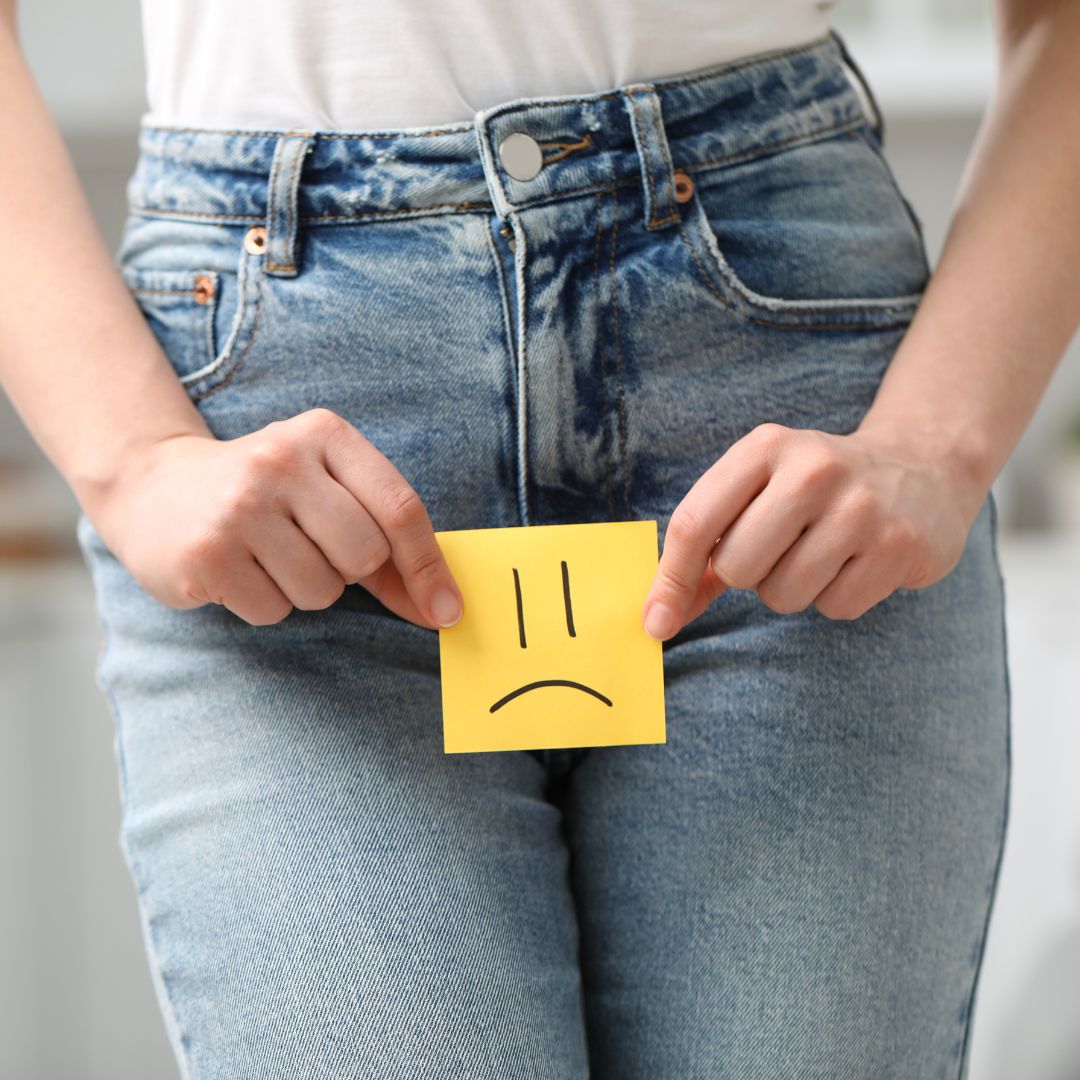Why Do I Feel Bloated? 5 Reasons Women Experience Bloating
Key Takeaways
- Bloating often starts in the gut, especially when digestion or your microbiome is off.
- Hormones, bathroom habits, and how you eat all play a role in how bloated you feel.
- Paying attention to your body’s patterns can help you pinpoint and reduce the bloat.
Bloating is one of those things that can sneak up out of nowhere. One minute your jeans fit fine, and the next, you’re wondering if you accidentally swallowed a balloon. It’s frustrating, uncomfortable, and weirdly common, yet most women still feel like they’re the only ones dealing with it.
At pH-D Feminine Health, we’re not here to pretend bloating isn’t real. We’re here to talk about it, unpack what might actually be causing it, and help you feel a little more in tune with what your body’s trying to tell you.
So let’s get into the real reasons behind the bloat and why you’re not alone in feeling this way.
1. Your Gut’s Out of Sync
This one catches a lot of people off guard. You might be eating pretty well, drinking water, skipping the drive-thru, but your stomach still feels like it’s filling up with air. That puffy, stuck feeling often comes from what’s going on inside your gut, not just what’s on your plate.
When your gut microbiome is off, digestion slows down. Gas builds up. Things don’t move the way they should. And for women, gut issues can spill over into vaginal and urinary health too. Everything’s connected. That’s why we’re big fans of a daily probiotic that actually supports all three systems.
Our Women’s Oral Probiotic is designed specifically with women’s needs in mind, combining prebiotics, probiotics, and cranberry extract to support your gut, vaginal flora, and bladder. It’s a simple step, but when taken consistently, it can really help keep things moving smoothly.

2. You’re Not Going When You Need To
If you’re holding in gas or skipping bathroom breaks because you’re busy, bloating is practically guaranteed. Your digestive system wants to do its thing, and when it gets delayed, everything starts to back up. You feel full, uncomfortable, and sometimes even a little nauseated.
This isn’t about perfection. Life gets hectic. Sometimes, you’re at work, on a plane, or in a place where the bathroom situation is questionable. We get it. But when it becomes a pattern, that bloated feeling sticks around way longer than it needs to.
Small shifts help. More water, more fiber, more movement, and yes, more permission to just go when you need to. There’s no shame in listening to your body. A regular rhythm matters more than people think, especially when it comes to bloating.
3. Your Hormones Are Fluctuating
You’re not imagining it. The pre-period bloat is real, and it’s your hormones doing what hormones do. As estrogen and progesterone levels rise and fall throughout your cycle, your body tends to retain more water and slow digestion, which can lead to that heavy, swollen feeling in your lower belly.
Some foods might also hit differently during this time, even if they usually don’t cause a reaction. And if you’re in the perimenopause or menopause zone, you’re dealing with a whole new kind of hormonal shift that can bring bloating, dryness, sleep issues, and mood swings all at once.
We created our Oral Menopause Support to help women through that transition. It includes sage, rhodiola, black cohosh, and other clinically-proven ingredients that soothe feelings of hot flashes, dryness, and the general fog that can come with hormonal changes.
If your bloating feels tied to where you’re at hormonally, supporting your body from the inside out can make a real difference.
4. You’re Eating Things That Don’t Sit Well With You
You don’t need a food sensitivity test to know when something’s not vibing with your body. Dairy, artificial sweeteners, beans, and cruciferous veggies like cauliflower and Brussels sprouts — all common triggers for bloat. Not because they’re bad, but because your body may not break them down as easily.
You don’t have to cut everything out to figure it out, just notice. Keep track of what meals leave you feeling fine and which leave you unbuttoning your pants by 3 p.m. Your body has patterns. You’re allowed to follow them, no matter what Instagram says about “superfoods.”
5. You’re Swallowing Air Without Realizing It
Sometimes it’s not what you eat, it’s how. Eating too fast, sipping through straws, chewing gum, chugging fizzy drinks, even talking while you eat can all lead to extra air in your digestive tract. And once it’s in, it’s not going anywhere fast. Cue: bloating.

This kind of bloat comes on quickly and can feel like pressure right under your ribs or in your upper belly. It’s not dangerous, just super annoying.
Try slowing down at meals, skipping the carbonation for a bit, and putting down the gum if it’s become a stress habit. Small tweaks can help you feel lighter without having to overhaul your entire routine.
Frequently Asked Questions
When should I see a doctor about bloating?
If your bloating is constant, painful, or paired with symptoms like weight loss, vomiting, or changes in your bathroom habits, it’s worth checking in with your doctor. Occasional bloat is common; daily discomfort isn’t.
Is there any way to get rid of bloating fast?
Kind of. If it’s gas or air, walking, stretching, or gently massaging your abdomen can help move things along. Herbal teas, like peppermint or ginger, may also offer some relief. But for long-term change, consistency (think: probiotics, hydration, and regular meals) is key.
What’s the difference between bloating and weight gain?
Bloating comes and goes, sometimes within the same day. It’s often tied to gas, water retention, or digestion. Weight gain is more gradual and sticks around longer. If your belly feels different from one hour to the next, it’s probably bloat, not weight.
The Bottom Line
The truth is, bloating happens to almost everyone. Whether it’s your hormones, your gut, or just how you ate lunch, it’s your body’s way of saying something’s off, and that’s worth listening to.
At ph-D Feminine Health, we’re all about giving you the tools to feel comfortable in your body, without shame, guesswork, or silence. From daily probiotics to hormone support, we’ve got science-backed solutions designed with women in mind.
Sources:
What Is Your Gut Microbiome? | Cleveland Clinic
Tired of Period Bloating? Here’s How to Manage It | Beaufort Memorial
Aerophagia: Symptoms, Causes, and Treatment | Sleep Foundation


